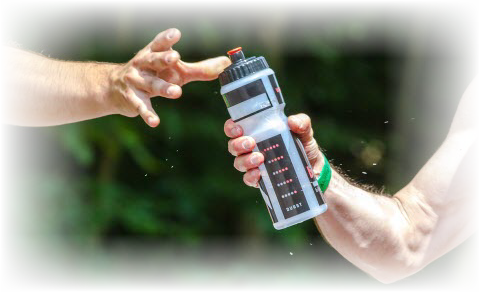Terry Stokes
Overhydration: Are we drinking too much water?
There is a belief that there is a certain amount water people should drink. "You got a drink 'X' many ounces of water per pound of bodyweight each day" or the potentially dangerous "drink water into your urine is clear" determining the amount of water you should drink is very easy. Just look at the color of your urine. If your urine is dark then drink more water. If your urine is too light or close to being clear, then drink less water. If your urine is a normal color then you're good, it's as simple as that.
There is a belief that there is a certain amount water people should drink. "You got a drink 'X' many ounces of water per pound of bodyweight each day" or the potentially dangerous "drink water into your urine is clear" determining the amount of water you should drink is very easy. Just look at the color of your urine. If your urine is dark then drink more water. If your urine is too light or close to being clear, then drink less water. If your urine is a normal color then you're good, it's as simple as that.
Young athletes are at risk of overhydration, especially
female athletes
female athletes
The fear of dehydration:
If you listen to the commercials for sports drinks you would think that dehydration is a major problem in people who exercise or who participate in sports. This is one of the reasons why many people are under the assumption that they're supposed to drink a large amount of water everyday. The fact is that proper hydration is important but overhydration has no extra health benefit. Most people should not have to worry about overhydration but some athletes who train in the heat, such as football players may drink excessive amounts of water trying to 'prevent' dehydration. Marathon runners have also been known to drink too much water during a race in the false assumption that they are protecting themselves against dehydration.
If you listen to the commercials for sports drinks you would think that dehydration is a major problem in people who exercise or who participate in sports. This is one of the reasons why many people are under the assumption that they're supposed to drink a large amount of water everyday. The fact is that proper hydration is important but overhydration has no extra health benefit. Most people should not have to worry about overhydration but some athletes who train in the heat, such as football players may drink excessive amounts of water trying to 'prevent' dehydration. Marathon runners have also been known to drink too much water during a race in the false assumption that they are protecting themselves against dehydration.
Hyponatremia: Low sodium levels in the blood. Can be caused by many reasons such from medical conditions, medications, drugs (ex. the street drug Ecstasy) or drinking too much water.
The practice of having football players 'drink water until your urine is clear' has come under much fire recently after a football player died from hyponatremia as a result of water intoxication (drinking too much water leading to hyponatremia). A few years ago, there was even a radio contests, that rewarded the person who could drink the most amount of water in a certain amount of time. A nurse called in to the radio station and warned that this was potentially dangerous. Her warnings were ignored... and one person died from this challenge.
A study done on runners in the Boston Marathon
showed that 13% were Hyponatremic after the race.
showed that 13% were Hyponatremic after the race.
Women more at risk for Overhydration:
Because women generally have less overall mass they are more likely to over drink water and become hyponatremic. So just be careful, just becasue you are involved in an endurance type sport doesn't mean you have to drink excessive amounts of water.
Because women generally have less overall mass they are more likely to over drink water and become hyponatremic. So just be careful, just becasue you are involved in an endurance type sport doesn't mean you have to drink excessive amounts of water.






